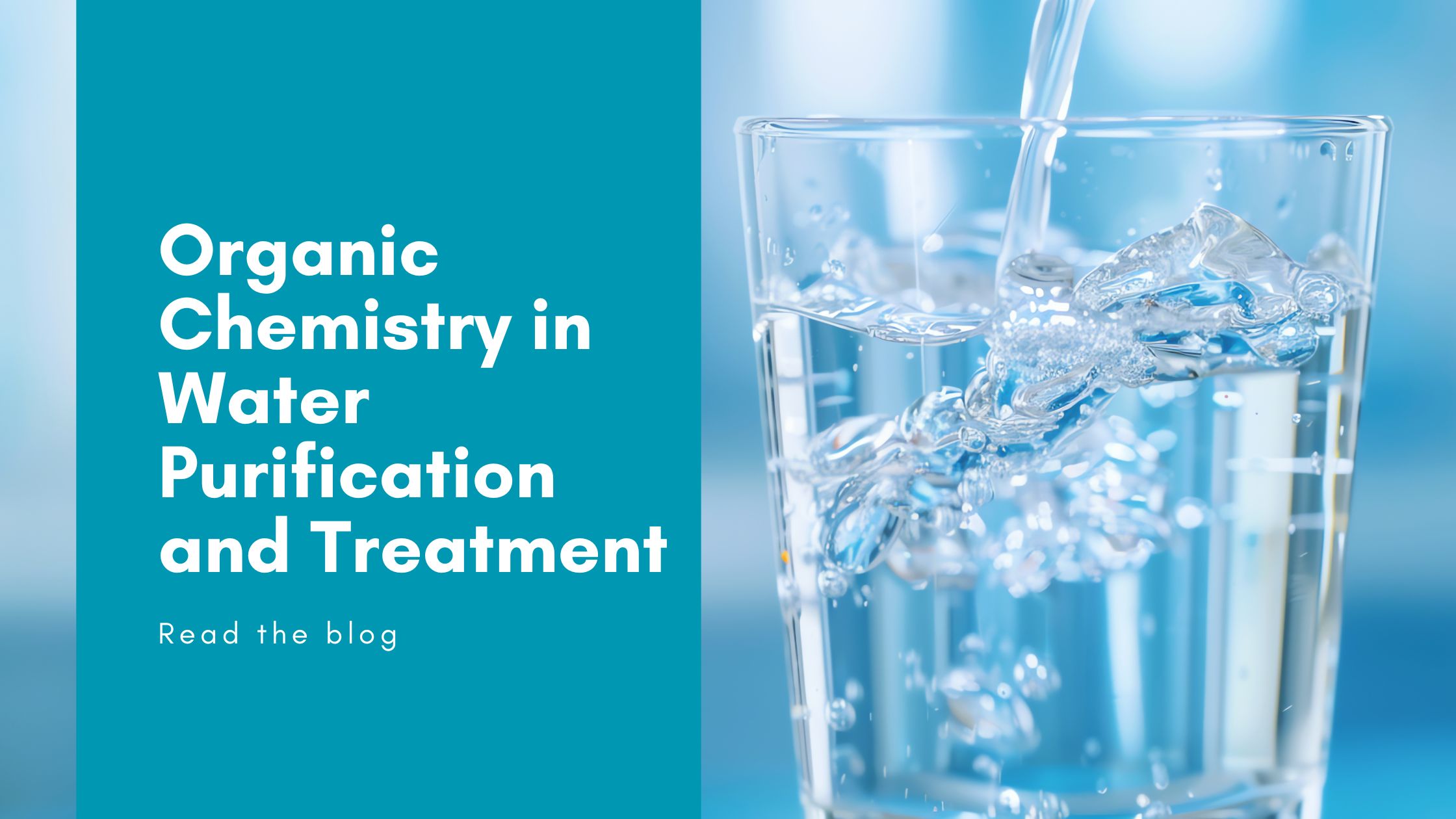Too Many Requests from Your Network
Please complete verification to access this content.
Introduction
One of the most important resources for life is water, but access to clean and safe drinking water is still a global challenge. There is a huge need for effective water purification techniques due to the rise in domestic pollution, agricultural runoff, and industrial waste. Organic chemistry plays a crucial role in water treatment, helping to remove harmful substances, neutralize pollutants, and ensure safe drinking water. Organic chemistry is considered the backbone of modern water purification tactics, whether it’s activated carbon filtration or advanced chemical treatments.
The Role of Organic Chemistry in Water Treatment
Water purification is a complicated process that involves physical, chemical, and biological methods. Organic chemistry makes an important contribution to this process by developing new materials, chemical reactions, and filtration tactics to remove or eliminate contaminants efficiently. Some of the key contributions of organic chemistry in water treatment may include:
Activated Carbon Filtration
Activated carbon filtration method is one of the most widely used purification method. It is based on the key principles of organic chemistry. Activated carbon is a highly porous material derived from organic sources like coconut shells, wood, and coal. Activated carbons absorb organic pollutants, chlorine pesticides or other harmful and dangerous substances from water. This process heavily relies on chemical bonding between organic contaminants and the carbon surface.
Chemical Coagulation and Flocculation
Coagulation and flocculation are the processes used to remove suspended particles from water and organic chemistry is essential in these processes. Chemicals like polyacrylamide, polyDADMAC, and organic polymers are used to aggregate small particles into larger clusters that can be easily removed through filtration. These organic compound play a key part in neutralizing the charge of contaminants, enable them to settle out of water.
Disinfection and Oxidation Processes
The process of eliminating bacteria, viruses and other harmful substances is known as the oxidation and disinfection process. Various disinfectants and oxidizing agents are utilized to treat this. Commonly used organic chemicals in disinfection include:
- Chlorine-based compounds (such as sodium hypochlorite)
- Ozone (O₃), which breaks down organic contaminants
- Chloramines, which provide long-lasting disinfection
- Peracetic acid, an organic compound used in industrial water treatment
Organic chemistry assists in improving these disinfection methods by developing more effective and environmentally friendly disinfectants that minimize harmful byproducts.
Ion Exchange and Softening
Hard water may contain a huge amount of calcium and magnesium ions, which can cause scaling in pipes and appliances. Organic resins used in ion exchange systems help remove these unwanted ions by replacing them with sodium or potassium ions. This process is mostly used in domestic and industrial water softening.
Membrane Filtration and Organic Polymers
Advanced water purification tactics such as reverse osmosis (RO) and Nano filtration rely heavily on organic chemistry polymer membrane to filter out contaminants. Synthetic organic polymers are utilized to design these membranes such as polyamide and polysulfone. These polymers allow only water molecules to pass through and block the passing of salt, heavy metals and harmful chemicals.
Future of Organic Chemistry in Water Treatment
As we all know, water pollution continues to rise, and scientists are working on developing more eco-friendly and sustainable organic chemistry-based solutions to improve water purification. Some emerging technologies may include:
Bio-based adsorbents: Using organic materials like agricultural waste to create more sustainable filtration systems.
Green chemistry disinfectants: Developing organic compounds that disinfect water without harmful byproducts.
Conclusion
At last we can conclude that organic chemistry in water treatment has revolutionized the way we purify and manage water resource because of its applications. Organic chemistry plays an integral role in ensuring clean and safe drinking water. The future of water treatment looks promising due to continuous advancements in green chemistry and sustainable purification methods.
Looking for expert guidance in organic chemistry? Get in touch today and take your learning to the next level!



